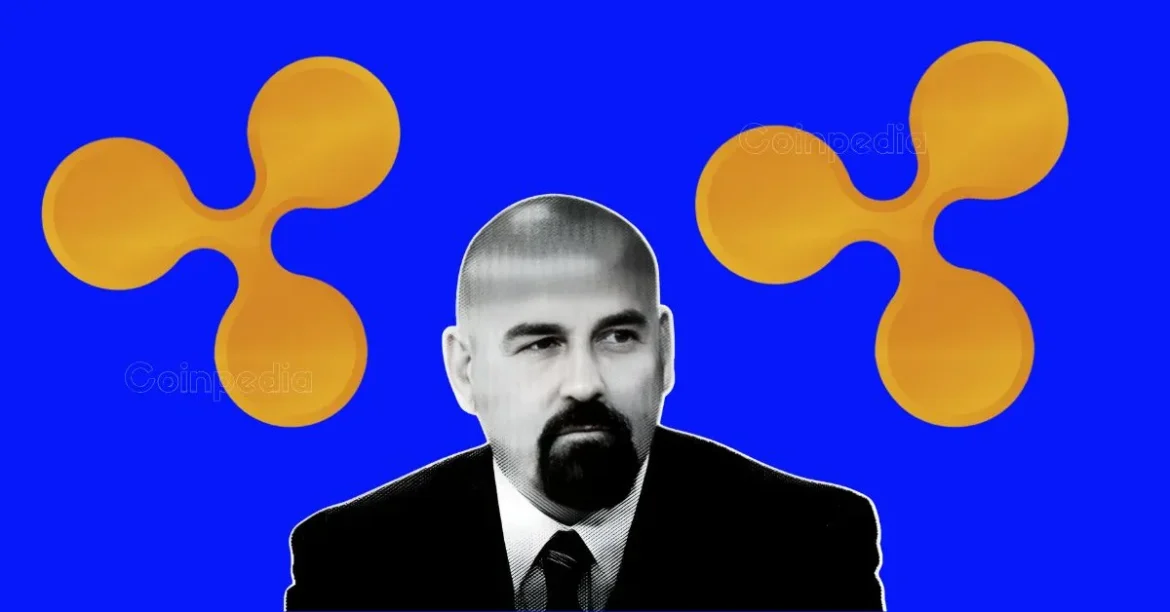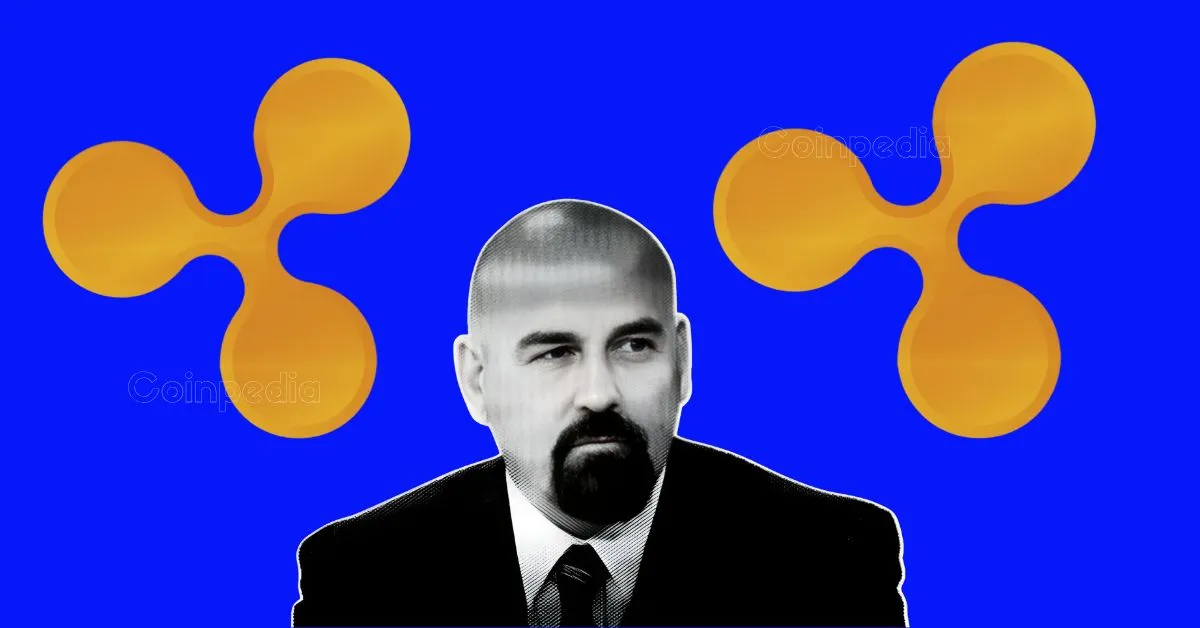The financial world is on the cusp of a revolutionary shift, one that could redefine how we interact with money, assets, and institutions. At the heart of this transformation is the growing disillusionment among younger generations—particularly Gen Z and Millennials—with traditional banking systems. These digital natives, who have witnessed the limitations and inefficiencies of conventional finance, are increasingly turning to cryptocurrency platforms as a viable alternative. This mass migration is not just a fleeting trend but a fundamental realignment of financial priorities, one that could reshape the global economic landscape.
Central to this narrative is John Deaton, a prominent figure in the crypto space whose insights and predictions have gained significant traction. Deaton, a former Marine turned crypto advocate, has boldly asserted that companies like Ripple and Coinbase are poised to surpass traditional banking giants. His claims are backed by compelling data: a staggering 89% of Gen Z and Millennials are reportedly willing to abandon traditional banks in favor of crypto platforms. This statistic alone underscores the seismic shift underway, as younger generations seek financial solutions that align with their values of transparency, accessibility, and innovation.
Ripple, one of the key players in this transformation, is expanding its influence beyond its initial role as a cross-border payment facilitator. The company is strategically positioning itself to become a leader in the tokenization of assets—a process that involves converting real-world assets into digital tokens on a blockchain. According to Deaton, Ripple is eyeing “tokenization-as-a-service,” a concept that could revolutionize how assets are traded and managed. This move is not just about technological advancement; it represents a fundamental challenge to the traditional financial infrastructure. By enabling the tokenization of everything from real estate to intellectual property, Ripple is paving the way for a more liquid, efficient, and decentralized financial system.
The potential acquisition of Uphold, a cryptocurrency platform with substantial XRP holdings, has further fueled speculation about Ripple’s ambitions. Uphold holds nearly 70% of its reserves in XRP, valued at approximately $4.54 billion, making it a highly attractive target for major players in the crypto industry. Deaton has named potential suitors like Coinbase, Kraken, and even Ripple itself, suggesting that such a deal would represent a strategic consolidation of power. The acquisition of Uphold by a major player could accelerate the mainstream adoption of XRP and solidify its position as a leading digital asset. This move would not only reshape the competitive landscape but also signal a broader shift toward institutional acceptance of cryptocurrencies.
Ripple’s decision not to pursue a banking license, despite the efforts of competitors like Coinbase and Circle, raises intriguing questions about its long-term strategy. Deaton has expressed surprise at this choice, noting that it seemed like “a matter of time” for Ripple to enter the banking space. Instead, Ripple appears to be focusing on providing the technology and infrastructure that enable other institutions to offer crypto-related services. This approach allows Ripple to avoid the regulatory complexities of operating a bank while still playing a pivotal role in the crypto ecosystem. By empowering other institutions, Ripple is positioning itself as a critical enabler of the broader financial transition.
Ripple’s recent $1.25 billion acquisition of Hidden Road, a technology provider for institutional credit markets, offers a glimpse into its grand strategy. Deaton believes that Ripple is quietly preparing to become a major player in the institutional blockchain space. This acquisition suggests that Ripple is building a comprehensive suite of services to cater to the needs of institutional investors, who are increasingly interested in digital assets but require sophisticated tools to participate effectively. This move aligns with Ripple’s broader vision of bridging the gap between traditional finance and the crypto world, ultimately unlocking a potential $16 trillion market. The implications of this strategy are profound, as it could redefine how institutions interact with digital assets and reshape the financial landscape.
The long-standing legal battle between Ripple and the SEC has been a defining moment for the company and the broader crypto industry. Deaton, a vocal advocate for XRP holders, has consistently argued that XRP is not a security. The SEC’s decision to drop its appeal against Ripple was hailed as a victory for the company and a validation of Deaton’s arguments. This outcome has provided much-needed regulatory clarity, paving the way for XRP’s wider adoption and integration into the financial system. The resolution of this case has not only strengthened Ripple’s position but also set a precedent for other cryptocurrencies facing similar regulatory challenges.
Rumors of Ripple’s interest in acquiring Circle, the issuer of the USDC stablecoin, have further fueled speculation about the company’s ambitions in the banking sector. Deaton believes that acquiring Circle could push Ripple toward becoming a bank, albeit indirectly. By controlling a major stablecoin, Ripple could gain a significant foothold in the payments and lending space, potentially competing directly with traditional banks. While Ripple has not officially confirmed its interest in acquiring Circle, the possibility highlights its strategic focus on expanding its reach and influence within the financial industry. This move could further accelerate the mainstream adoption of stablecoins and solidify Ripple’s position as a leader in the crypto space.
John Deaton’s journey from a former Marine to a leading crypto advocate is a testament to the transformative power of digital assets. His legal expertise and unwavering commitment have made him a prominent voice in the industry, particularly in the fight against regulatory overreach. Deaton’s background as a Marine has instilled in him a sense of duty and a willingness to fight for what he believes in, qualities that have served him well in his role as a champion for crypto innovation. His advocacy has not only raised awareness about the potential of cryptocurrencies but also highlighted the need for balanced and fair regulation.
Speculation about a potential Ripple IPO has been circulating for some time, and Deaton has reignited the discussion with his prediction that the company could achieve a $100 billion valuation. He argues that the timing is now a critical factor, suggesting that Ripple is positioning itself for a public offering in the near future. An IPO of this magnitude would be a landmark event for the crypto industry, further validating the potential of digital assets and attracting mainstream investors. While Ripple has stated that it is not planning to go public in 2025, the possibility remains a significant topic of discussion within the crypto community. The potential IPO would not only provide a boost to Ripple’s valuation but also signal broader institutional confidence in the crypto market.
John Deaton’s decision to run for Senate against Elizabeth Warren has injected a new level of excitement and optimism into the crypto community. Warren, a vocal critic of cryptocurrencies, has advocated for stricter regulations and raised concerns about their potential risks. Deaton’s campaign represents a direct challenge to Warren’s anti-crypto stance and an opportunity to bring a pro-crypto voice to the Senate. With backing from Ripple CEO Brad Garlinghouse and a $1 million donation from Ripple, Deaton’s campaign has gained significant momentum, signaling a growing political awareness and engagement within the crypto industry. His candidacy highlights the increasing influence of the crypto community in shaping policy and regulation.
The rise of crypto platforms like Ripple and Coinbase signals a fundamental shift in the financial landscape. Driven by the demands of a digitally native generation and fueled by technological innovation, these companies are poised to challenge the dominance of traditional banks and usher in a new era of finance. Deaton’s vision of a future where crypto platforms offer a full suite of financial services, from lending to tokenization, is becoming increasingly plausible. As the crypto industry continues to mature and regulatory clarity emerges, the transition from traditional finance to a decentralized, blockchain-based system will only accelerate. The momentum is undeniable, and the era of crypto banking is dawning, with companies like Ripple and Coinbase leading the charge. The future of finance is decentralized, transparent, and accessible to all, promising a more inclusive and efficient financial system for generations to come.





